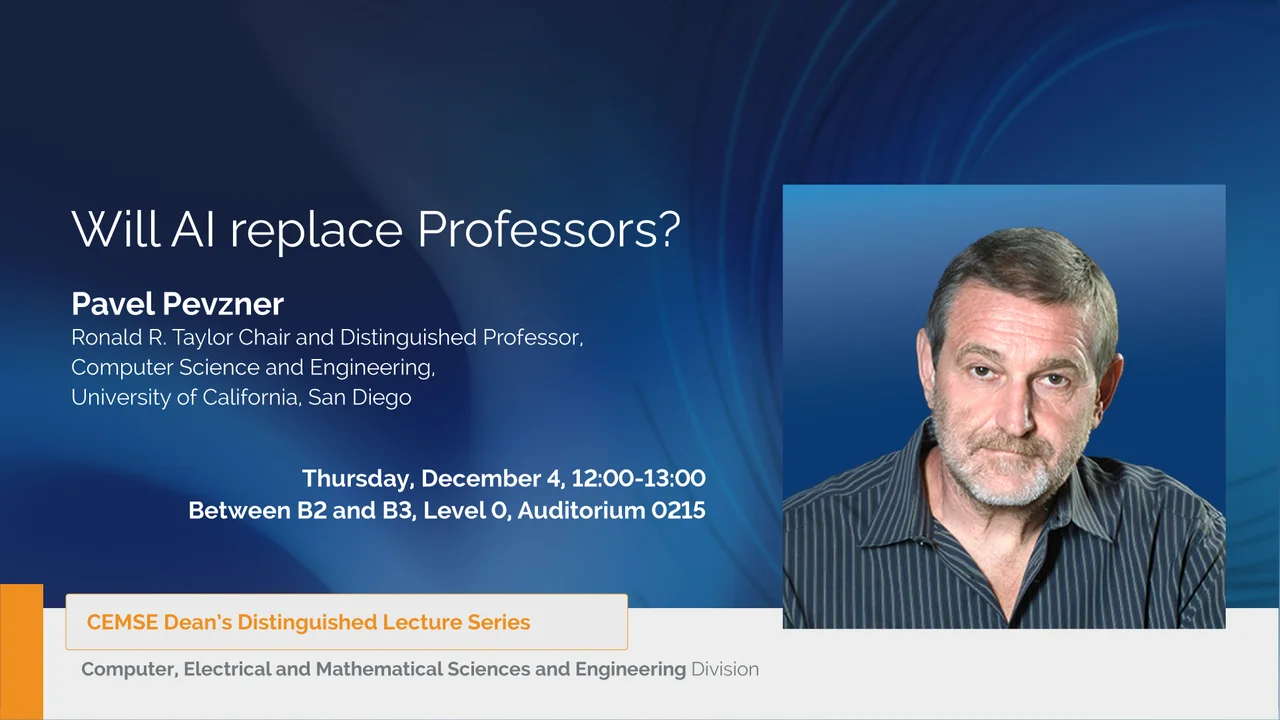
Will AI Replace Professors?
This talk explores Massive Adaptive Interactive Texts (MAITs) as a pioneering AI technology that aims to replace the one-size-fits-all lecture model with a responsive and scalable system for individualized instruction.
Overview
The replacement of some human professors by AI professors is not a matter of possibility, but inevitability—it’s only a question of when. Meanwhile, universities continue to pack hundreds of students into large lecture halls, despite the fact that this “hoarding” approach offers little pedagogical value. This issue is particularly acute in Science, Technology, Engineering, and Mathematics (STEM) courses, where limited opportunities for student questions can lead to learning breakdowns—points at which students cannot progress without individualized guidance. I introduce Massive Adaptive Interactive Texts (MAITs), which diagnose and address these individual learning breakdowns and outperform traditional classroom instruction by adjusting to the unique learning needs of each student. AI advancements will make adaptive MAITs ubiquitous, digitizing individual learning paths and transforming educational psychology into a data-driven science. The rise of AI-powered adaptive learning tools like MAITs means universities must rethink their teaching methods. Unlike AI, professors cannot offer office hours 24/7, and they cost significantly more than a MAIT. Forward-thinking universities will likely experiment with AI faculty, as it promises both cost reduction and improved educational quality. Moreover, while AI won’t replace professors in the near future, professors who use AI may replace those who don’t. I explore how professors can work alongside AI, even as it evolves into a superior instructor in virtual classrooms.
Presenters
Pavel Pevzner, Ronald R. Taylor Chair and Distinguished Professor, Computer Science and Engineering, University of California, San Diego
Brief Biography
Pavel Pevzner is the Ronald R. Taylor Chair and Distinguished Professor of Computer Science and Engineering at the University of California, San Diego. He earned his Ph.D. from Moscow Institute of Physics and Technology, Russia. Dr. Pevzner has received various accolades, including election as a Fellow of the Association for Computing Machinery (2010), the International Society for Computational Biology (2012), the Academia Europaea (2016), and the American Association for the Advancement of Science (2018). Dr. Pevzner authored textbooks "Computational Molecular Biology: An Algorithmic Approach", "Introduction to Bioinformatics Algorithms" (with Neal Jones), “Bioinformatics Algorithms: an Active Learning Approach” (with Phillip Compeau), and “Learning Algorithms through Programming and Puzzle Solving” (with Alexander Kulikov). He co-developed the Coursera online specializations in Bioinformatics and Algorithms with over 600,000 enrolled students.